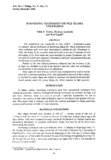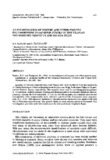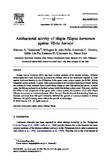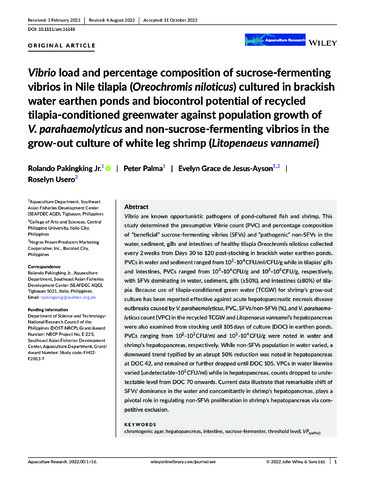Harvesting techniques for Nile tilapia fingerlings
Share
Abstract
The experiment was conducted in nine-320m2 - freshwater ponds to evaluate various techniques of harvesting tilapia fry. Three treatments with three replicates each were used: harvesting by seining the fry (Treatment I), daily harvesting of fry in ponds using fine-mesh scoop net (Treatment II) and harvesting of fry from hapa net cages installed in ponds (Treatment III). All broodstock ponds were prepared, maintained uniformly and sustained through fertilization at recommended dose.
Results of the two trials/experiments indicated that the recovery of fry in hapa net installed in ponds is far superior than the other two techniques but mortality in all treatments is not significant.
Hapa cages are used here as a tool for easy management as well as mechanical aid to prevent predation of fry and cannibalism inherent if fish is directly stocked in ponds. Hapa also served as substrate for natural food and additional grazing areas for young tilapia fry which resulted in high recovery.
Suggested Citation
Tabbu, N. S., Lacierda, R. B., & Eguia, R. V. (1986). Harvesting techniques for Nile tilapia fingerlings. Fisheries Research Journal of the Philippines , 11(1-2), 39-42. http://hdl.handle.net/10862/1198
Subject
Collections
- AQD Journal Articles [1248]
Related items
Showing items related by title, author, creator and subject.
-
An investigation of enzyme and other protein polymorphisms in Japanese stocks of the tilapias Oreochromis niloticus and Tilapia zillii
Basiao, Zubaida U.; Taniguchi, Nobuhiko (Elsevier, 1984)Samples of Oreochromis niloticus and Tilapia zillii were collected from the hatcheries of Osaka Prefecture Fisheries Experimental Station and Shiga Prefecture Fisheries Experimental Station, Japan, respectively. The samples ... -
Antibacterial activity of tilapia Tilapia hornorum against Vibrio harveyi
Tendencia, Eleonor; dela Peña, Milagros R.; Fermin, Armando C.; Lio-Po, Gilda; Choresca, Casiano H., Jr.; Inui, Yasuo (Elsevier, 2004)Disease due to luminous Vibrio has been a major problem of the shrimp industry. Different technologies have been introduced to control the disease. One of the techniques reported to work against luminous bacteria in the ... -
Vibrio load and percentage composition of sucrose‐fermenting vibrios in Nile tilapia (Oreochromis niloticus) cultured in brackish water earthen ponds and biocontrol potential of recycled tilapia‐conditioned greenwater against population growth of V. parahaemolyticus and non‐sucrose‐fermenting vibrios in the grow‐out culture of white leg shrimp (Litopenaeus vannamei)
Pakingking, Rolando V., Jr.; Palma, Peter; de Jesus-Ayson, Evelyn Grace T.; Usero, Roselyn (Wiley, 2022-10-20)Vibrio are known opportunistic pathogens of pond-cultured fish and shrimp. This study determined the presumptive Vibrio count (PVC) and percentage composition of “beneficial” sucrose-fermenting vibrios (SFVs) ...





